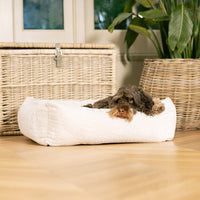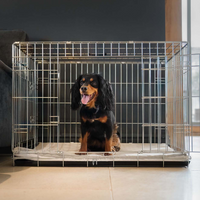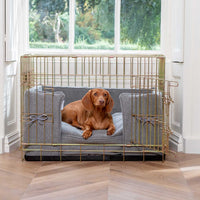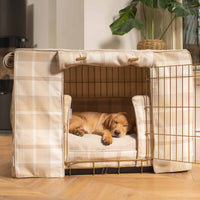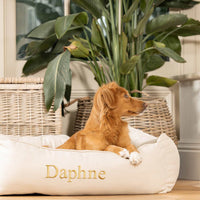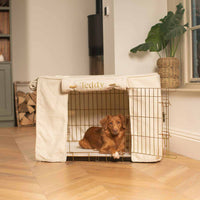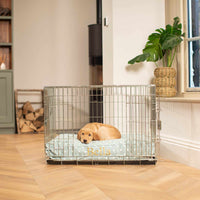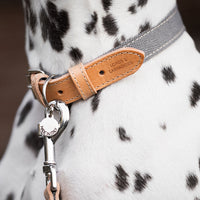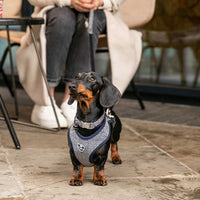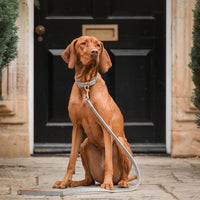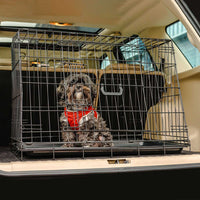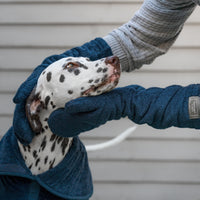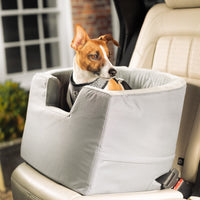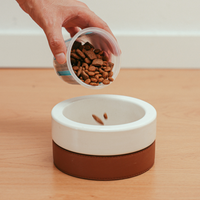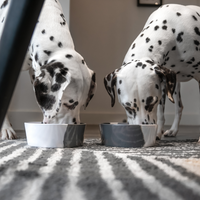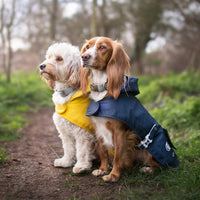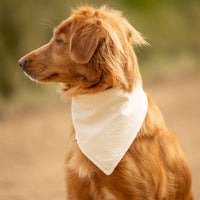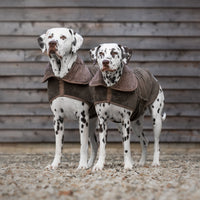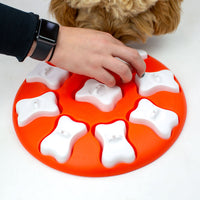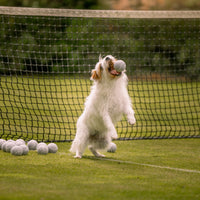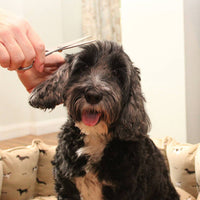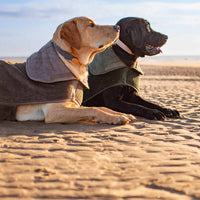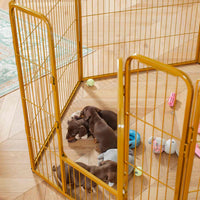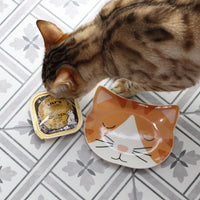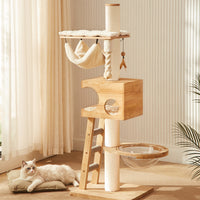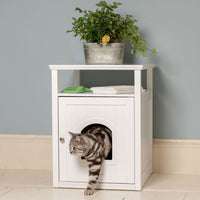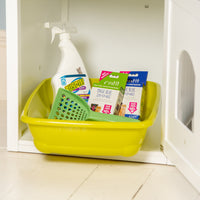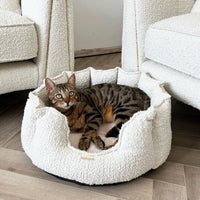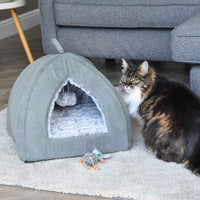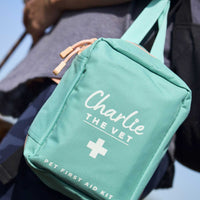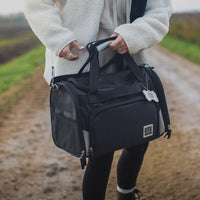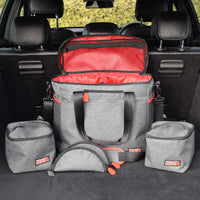Our pets are as much a part of the family as our human family members, so bringing them along on holiday with us is the most obvious choice if we can. Yes, we could leave them behind in holiday kennels if necessary, but we’d probably all much rather take them along for the trip if possible.
If your holiday of choice this year is camping, then you may well consider taking your dogs along for the adventure. Camping offers all kinds of fun for the whole family and with so many dog-friendly campsites our canine family members can easily join in with the trip. In this blog we’ll discuss camping with your dog and give some handy tips and advice to help make your trip go smoothly.
Find A Dog Friendly Campsite

The first thing you will need to do is find a dog-friendly camp site. Luckily, the UK has a plethora of options when it comes to dog-friendly camping so you will be spoilt for choice. You may wish to do some extra research into the surrounding areas to see what other things you can do with your dog. Britain has so many fun places to explore with loads of dog-friendly beaches and parks too. Just remember to check your dogs will be welcome on your travels before you go to avoid any disappointment. Some things to consider are:
- What dog-friendly activities are there to do nearby
- Are there any dog-friendly pubs or places to eat?
- How long is the journey - will your dog be able to cope with it?
- What are the onsite facilities like?
- Is there anywhere for your dog to play off-lead?
A little bit of extra research into some of these questions will help you to find a suitable place for your needs. It will hopefully ensure you all have a lovely time, not only at the campsite, but when exploring the local area too.
Travel Safely With Your Dog
Travelling safely with our pets is important no matter how short or long the journey. Going on holiday will likely involve a longer journey than your dog is used to in their everyday routine, so comfort will be a priority. You’ll obviously need the correct safety accessories for the car including a travel crate or car harness, but we’d also suggest adding a blanket or two and perhaps a chew toy to keep them occupied on the journey.
Remember to pack some refreshments for the journey too. If it’s going to take you a couple of hours or more to get to your destination then you’ll need to stop to stretch your dog’s legs, pop to the loo and have a drink of water and a snack.
Pack Your Dog's Things
Packing for ourselves can be a bit stressful, but if you’re taking your dog on holiday too, you’ll have a host of other things to take with you. Make a list of your dog’s daily essentials so you don’t forget anything.
They’re going to need:
- A waterproof travel bed - Your dog’s comfort is important so make sure you bring a travel mattress or other suitable bed for them to sleep in. A waterproof bed is a great option as it will brush down easily if it gets a bit dirty or wet. We love the range of dog beds by HiK9 in particular. They have a range of accessories such as additional blanket toppers to make the bed as warm and cosy as needed.
- Blankets - Camping can get a chilly, even in the Summer. Bring along some extra bedding to help keep your dog warm at night-time or during their afternoon nap.
- Food - Enough for the whole trip. Taking a large bag probably won’t be very practical. We’d suggest taking airtight containers with pre-weighed meals inside as they’ll travel much more easily.
- Travel bowls - A travel dining set for dogs will allow you to serve your dog’s food in a practical way. Pop-up travel bowls are a brilliant choice as they can be stored flat for the journey
- Toys - At least a couple of chew and throwing/tugging toys. Playtime is an important part of your dog’s day wherever you are and will stop boredom creeping in. A chew toy will keep them occupied on the journey and offer them an activity to do at the campsite when your’e not out exploring.
- Any medication/supplements they usually take - Keeping your dog's routine as consistent as possible important. Any supplements that your dog takes on a regular basis should be popped in your travel bag.
- Pet first aid kit - This could be a collection of things you’ve put together yourself or a store bought first-aid-kit
- Plenty of poo bags - These should be in your travel bag whenever you leave the house!
- Pet wipes - These are super practical for all kinds of situations including cleaning your pup down before getting back in the tent or car.
- A drying coat, mitts or towel - The British weather can be unsettled at the best of times and it’s indefinite possibility that you’ll get caught out in a shower. A drying coat is a brilliant accessory to pop on your wet dog when you get back to the tent. It will stop water getting everywhere and help keep your dog warm.
- Walking set - We’d suggest a good quality and robust harness as well as a couple of leads.
Respect Other Campers

Your dog may find the campsite a really exciting place, especially if they haven’t been to one before. They may want to meet all of the new people they see and they may try to sniff out that barbecue they can smell! Ensure you have brushed up on their training before you go, so that their manners are as good as can be. Having good recall skills is brilliant for situations such as this.
If you think you need it, you could take a tether so that they can’t run off whilst you’re outside. This way, you can all sit around the campfire outside the tent or caravan without worrying that your dog will run off.
Remember, not everyone loves dogs as much you do and there may be non-dog owners staying at the same location as you. Making sure your dog has good manners and will do as he’s told, will ensure that everyone can have a good time.
Clean Up After Your Dog
This is important wherever you are, whether it’s the campsite or when you’re out exploring. Ensure you take plenty of poo bags so you can keep the area clean and remove any other mess that your dog might create. You wouldn’t leave your own rubbish behind and it’s important to remove your dog’s mess too.
More Top Tips for Camping with Your Dog

- Check your dog’s microchip details – ensure they are up to date in case your dog gets lost.
- Research a local vet – Having a local vet’s number on hand for emergencies is a really good idea. You never know when an accident might happen.
With a little bit of time and research put into the planning of your trip, we’re sure you’ll have the best camping experience with your dog.
If you need any help or advice about the products that we’ve mentioned, please do get in touch. We’re always happy to help!


